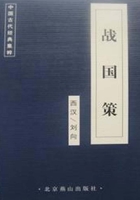It was called together to pronounce judgment on the Princess Sophia who, during the absence of Peter the Great in the Western States of Europe, had tried by the help of the strelzi (a kind of Life-Guards) to seat herself on the Russian throne. The only contemporary writer who mentions this Assembly is a German of the name of Korb, who was secretary of the German Legation. According to him the young monarch insisted on this occasion on the presence of two delegates from each of the Estates, beginning with the highest and ending with the lowest. Unfortunately no information has come down to us as to the decision arrived at by this quasi-general representative body of the Russian people.
One fact especially merits our attention: The Sobors were never abolished by law. They simply ceased to exist just as did the States-General of France from the beginning of the seventeenth (1613) to the end of the eighteenth century. No legal act, therefore, lies in the way of a new convocation of the representatives of the empire. Should the present Emperor convoke them, in so doing he would be in perfect accord with the first founders of his dynasty, and also with the promises contained in the Magna Charta of the first Romanov.
Turning from the political history of the old Russian Parliaments, we will now consider their internal constitution. As we have seen, the seventeenth century introduced a complete change in their composition. During the reign of Ivan the Terrible the administrative and military classes had alone been represented; from the time of the interregnum they became meetings of delegates from all the different Estates. The following were the classes of the people who were represented:
the superior clergy, the higher nobility, the lower clergy, and the lower nobility, or what is the same thing the ministerial or knightly class as they were called at that time, the three Guilds of Moscovite merchants, the citizens of the different urban districts and, on two different occasions, in 1614 and 1682, the black hundreds and villages, which meant in the technical language of the time, the peasants established on the lands of the State. Serfs, and persons who had lost their personal liberty on account of debts or any other reason, were never admitted to the right of representation. The army was very often represented by delegates from the regular regiments, such as the strelzi, and some irregular troops, the Cossacks for instance. The large extent of the Russian dominions and the consequent remoteness of certain places from the metropolis, was a natural barrier to the appearance of certain delegates at the Sobor. It was for this reason that the cities of Siberia remained without representation. Other places less remote got exemption from the duty of choosing delegates on account of the bad state of the roads and the difficulty and even danger connected with travelling. Some few considered it a great burden, on account of the expense of the journey and the maintenance of the delegates.
In this they acted like those mediaeval English cities and boroughs, which under the Plantagenets did their best to shirk the duty of representation. The number of persons sent by each electoral circuit was not strictly fixed. Generally the writs of summons speak of two or three delegates.
The electoral district was, as a rule, the city and its outlying parts. Larger cities, as Novgorod, constituted by themselves several districts; in Novgorod there were no less than five such districts. The Metropolis (Moscow) was largely represented by delegates from the lower nobility, by those of the three classes of Moscovite traders and the representatives of the black hundreds and villages.
The writs of summons were addressed to the voivodes, or Governors of provinces, and to the goubnii starosti, or elective district heads.
To give you a clear notion of the mode in which the elections were managed, I will translate one of these writs. The writ in question was issued on the 9th of September, 7128, counting from the beginning of the world (that is the year 1619): "In the name of the Czar Michael, the voivode of Oustujna, named Boutourlin, is ordered to elect among the clergy, one man or two, and from the nobility (the sons of boyars) two persons, and two more from the inhabitants of the urban district (posadskii liudi). The persons must be well-to-do and intelligent, capable of narrating the wrongs they have sustained, and the oppression and destruction which they have suffered. The election rolls must be sent by the voivode to Moscow, and should be received not later than on St. Nicholas's day."The voivode, or goubuoi starosta, as soon, as the writ was in his hands, summoned the electors and ordered them to proceed to the nomination of their delegates. Each estate or order acted separately. In answer to the writs they had received, the voivodes sent in a detailed account of the election proceedings.















